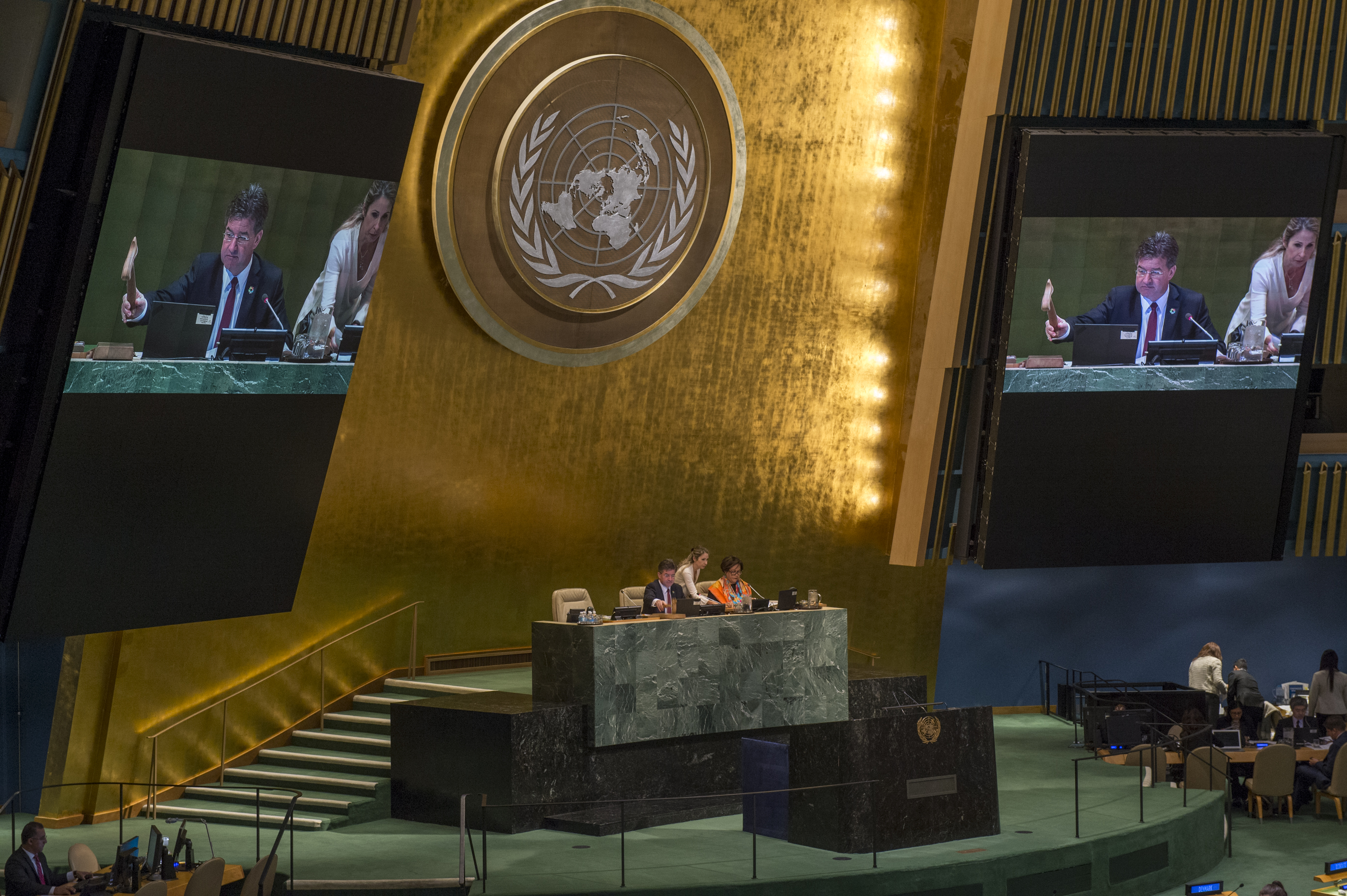Question of Palestine

– As delivered –
Statement by H.E. Mr. Miroslav Lajčák, President of the 72nd Session of the UN General Assembly, at Plenary Meeting of the General Assembly on the State of Palestine
Excellencies, distinguished delegates, dear colleagues.
We are here, in this hall, today to discuss the question of Palestine. As you know, this item was placed on our agenda 70 years ago. The United Nations has changed a lot since then. Its membership has more than tripled in size. It has led the evolution of international laws and norms. It has expanded through new agencies, funds, and departments.
Despite all of this change, the question of Palestine remains a question. And despite all of this change, the duty to resolve it remains as strong as ever.
I want to make three main points today, to frame our discussion.
The first is that there can be no alternative to direct talks.
Over the last seven decades, a final agreement has, at times, seemed within reach. All of these times have had something in common; they have happened only when Israeli and Palestinian negotiators have been in direct negotiations.
This is not unique to the Palestinian situation. In fact, it has been a trend throughout history. The biggest breakthrough deals and agreements were not made by shuttling messages across different borders. Nor were they made in big halls, like this one. Rather, they came about when parties were in one room, around one table. So, while today’s discussion, and others like it, play an important role, they must complement direct and meaningful talks, which can lead to a two-state solution.
This does not mean that the efforts of the international community should be discounted. And this brings me to my second point, which is that there is a continuing need for political support from international, regional and national actors. This support can bring us closer to a peaceful resolution of the Palestinian question. In particular, I want to acknowledge the work of the United Nations Special Envoy and his team, as well as the Quartet on the Middle East.
International and regional tools for mediation and facilitation have led to some promising developments. Now is the time to recalibrate and strengthen them.
The international community has also rallied in response to the humanitarian needs of the Palestinian people – particularly those living in the Gaza Strip. Here, I also want to emphasise the need for international and regional mediation in support of humanitarian access – across the Middle East and in
other parts of the world. I call for even stronger efforts to strengthen respect for international humanitarian law, and to secure access to people who are in humanitarian need.
Despite all of this change, the question of Palestine remains a question. And despite all of this change, the duty to resolve it remains as strong as ever.
My third point today is that a positive momentum is building. We must maintain and increase it.
I want to point, in particular, to progress seen with regards to intra-Palestinian reconciliation, and to the contribution of Egypt in this regard. We should also look to the recent three-day opening of the Rafah border crossing as a positive sign. Here, I would like to acknowledge the commitments made by the Palestinian Authority, under the leadership of President Abbas, to further progress.
All of this momentum has been driven by diplomacy and dialogue. And only through diplomacy and dialogue can it be maintained and increased.
Excellencies,
As I mentioned, the General Assembly placed the question of Palestine on its agenda in 1947. Since then, many discussions have been had.
We have talked about problems and solutions; obstacles and possibilities; stalemates and
opportunities. We have heard positions from all parties. We have called for action, and we have expressed hope for the future.
Yet, we still haven’t answered the question of Palestine. And, unfortunately, we are unlikely to answer it today.
So, what should we do? Call off today’s discussion? Repeat our statements from last year, and resign ourselves to hearing others do the same?
If we do this, we fail in the task we set ourselves in 1947. More importantly, we fail the people on the ground.
So, even though this item has been on our agenda for 70 years, I urge you to see today as a new opportunity. Because, it is an opportunity for dialogue. And, at any moment, dialogue can take a new course. It can uncover new scope for compromise. It can reveal a new way of seeing things.
This might be an old issue – but it demands a new perspective, and it demands dialogue.
I thank you.